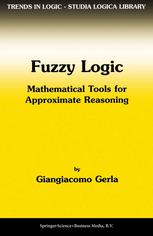

Most ebook files are in PDF format, so you can easily read them using various software such as Foxit Reader or directly on the Google Chrome browser.
Some ebook files are released by publishers in other formats such as .awz, .mobi, .epub, .fb2, etc. You may need to install specific software to read these formats on mobile/PC, such as Calibre.
Please read the tutorial at this link: https://ebookbell.com/faq
We offer FREE conversion to the popular formats you request; however, this may take some time. Therefore, right after payment, please email us, and we will try to provide the service as quickly as possible.
For some exceptional file formats or broken links (if any), please refrain from opening any disputes. Instead, email us first, and we will try to assist within a maximum of 6 hours.
EbookBell Team

4.8
44 reviewsFuzzy logic in narrow sense is a promising new chapter of formal logic whose basic ideas were formulated by Lotfi Zadeh (see Zadeh [1975]a). The aim of this theory is to formalize the "approximate reasoning" we use in everyday life, the object of investigation being the human aptitude to manage vague properties (as, for example, "beautiful", "small", "plausible", "believable", etc. ) that by their own nature can be satisfied to a degree different from 0 (false) and I (true). It is worth noting that the traditional deductive framework in many-valued logic is different from the one adopted in this book for fuzzy logic: in the former logics one always uses a "crisp" deduction apparatus, producing crisp sets of formulas, the formulas that are considered logically valid. By contrast, fuzzy logical deductive machinery is devised to produce a fuzzy set of formulas (the theorems) from a fuzzy set of formulas (the hypotheses). Approximate reasoning has generated a very interesting literature in recent years. However, in spite of several basic results, in our opinion, we are still far from a satisfactory setting of this very hard and mysterious subject. The aim of this book is to furnish some theoretical devices and to sketch a general framework for fuzzy logic. This is also in accordance with the non Fregean attitude of the book.